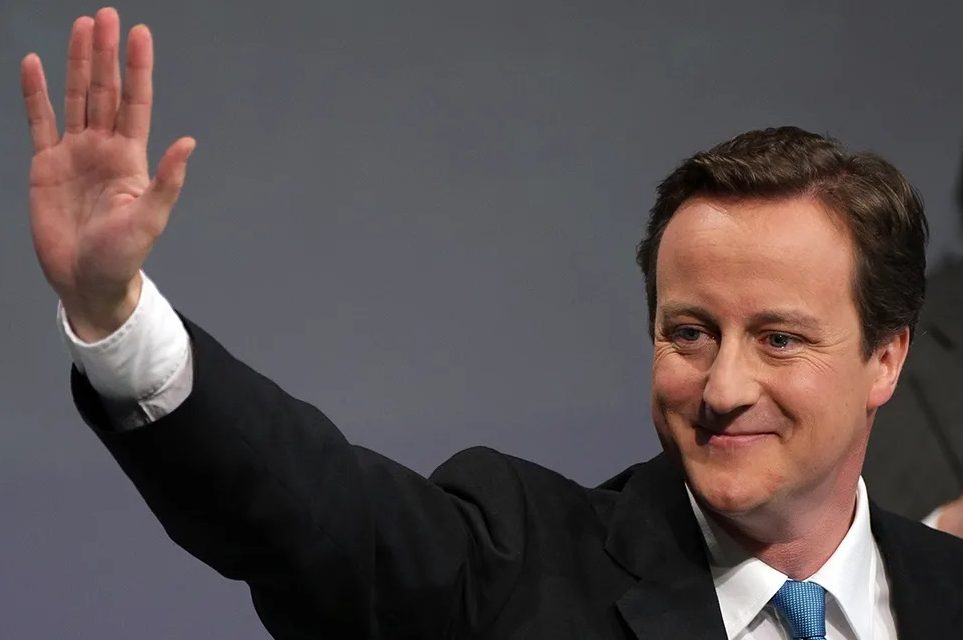The problem is, Britain really need a Tory Party. Whether they have one at the moment is another question. Political debate requires a significant and trustworthy proponent of personal freedom, of the limits of government, of personal responsibility, of strict limitations of government expenditure, of independent enterprise which may succeed through a lack of intrusive state control or may fail without hope of public rescue. Not everyone will share those values. But I think everyone should accept that it’s proved catastrophic that those values have apparently disappeared from public policy.
History rhymes but does not repeat itself. The lessons of previous periods when major economic policies of an interventionist sort were agreed with no serious dissent ought to have been learnt. In particular, the disasters of the Heath government, which went as far as reintroducing Wilson’s national board for prices and incomes, should be considered.
There has been a collapse of any kind of trust in the Tories, because they seem, and indeed are, utter hypocrites
At the moment we have a situation where it seems to be almost universally accepted that millions of people perfectly capable of work should be supported in full or in part. The abandonment of social principles that trusted personal responsibility at the outset of the Covid pandemic still seems to me quite remarkable. I wrote a novel about it which began: “The State gave an order. We obeyed the order. Everyone obeyed the order. And the world changed.” I still find it quite incredible that the state at the time was under the control of the Tories, who were supposed to value personal independence.
The severe lockdown had a number of consequences. The economic burden will be felt for decades. We are just finding out what lockdown turned that generation of children, school and university students into — in many cases, unsocialized, obsessed with victimhood and tiny slights, full of undirected rage. Worst of all, with lockdown came an end to the social mobility that education used to offer children who had little parental support. It probably made no difference in the end to the course of the virus — and I say that as someone who was extremely ill with it, unprotected, as it turned out, by the severity of lockdown.
Now, people may have chosen to support all those consequences. They may have been right to have done so. But there was nobody in the supposed party of freedom, as far as anyone could see, holding their nerve. The consequence is the collapse of any kind of trust in the Conservative Party, because they seem, and indeed are, utter hypocrites. What was wrong with those Downing Street jamborees was not that they took place, spreading the virus among young, healthy people who were taking their chances, as they ought to have been free to do. The disgrace was that those people were demanding enforced restrictions that they evidently didn’t believe in, imposing policy from outside the mainstream of conservative thought with results catastrophic for the nation, and even more for the Tory Party itself. Some choice of ideas should have been presented to the nation — in quite cartoonishly broad form, it was, in 2017, between Boris Johnson’s mayor-in-Jaws shtick and Jeremy Corbyn’s antediluvian interventionism. What the nation got, when a predictable but unforeseen event struck, was the opposite of what it thought it had asked for.
It is fair to point out that Geoffrey Wheatcroft doesn’t agree with this point at all. He strongly criticizes Johnson’s government, not for its abandonment of its presumed principles, but for not acting in a still more authoritarian way and closing down society earlier, and more strictly. Lockdown, however, is only part of the analysis. As long ago as 2005, Wheatcroft wrote an excellent and very amusing book, The Strange Death of Tory England, about the woes of the Conservatives, running up to Tony Blair’s third triumph. Now he returns to the scene of the crime. It might be thought that his obituary was premature, followed as it was by the revival of the party under David Cameron, a 2010 coalition government and from 2015 a series of Tory governments. But those governments have not had much to show in the way of successes, despite some very talented and able ministers, and increasingly have lurched from one disaster to another.
It now appears widely accepted that millions of people perfectly capable of work should be supported in full
The two root causes of the present lamentable state are what Wheatcroft identifies. First, the disastrous revision of the leadership election procedure to hand the final choice to a small and unrepresentative party membership. As was said long ago, if the members had had the choice, Edward Heath would still have been in place in 1992, having lost his sixth successive general election. There is a strong case for saying that the people who make the best choice are those who know the candidates best, the parliamentary party. Knowing that the membership will have the final say not only robs that decision of finality, but makes them second-guess what their members think, with repeatedly disastrous effect. Will they have the nerve to go for Kemi Badenoch, clearly the modern-day equivalent of their 1975 gamble on Margaret Thatcher? We will find out.
The second cause was Cameron’s ill-advised turn to the referendum as a device to govern. Wheatcroft reminds us of Clement Attlee’s brisk dismissal of a suggestion by Winston Churchill, that he could “never consent to the introduction into our national life of a device so alien to all our traditions as the referendum, which has only too often been the instrument of Nazism and fascism.” (Hitler held four.) Cameron managed to get rid of the question of proportional representation with his first referendum, in 2011. The second, on Scottish independence, poisoned debate and pushed a grossly incompetent and posturing nationalist party into power without adequate controls. And the third was on Brexit, with consequences we are still finding out about.
As it turned out, the conduct of the European Union in the Brexit negotiations was such as to defeat any moderately competent and natural collegiate leader, such as Theresa May. Once she had gone, the only choice appeared to be to go for what might be termed the madman option. In the 1980s, the Cold War debate shifted decisively because the Soviet Union believed for the first time in decades that they had an American president who might genuinely want to fire nuclear weapons at them. In the same way, the Europeans didn’t believe for a second that May would ever commit to Brexit without a deal, but just could not be sure that the same applied to Johnson. He might be capable of anything. That, in the end, was quite a good thing for delivering a conclusion to Brexit. But was it a good motive for choosing a prime minister? The processes imposed on Brits during Covid answered that question decisively.
Geoffrey Wheatcroft’s Bloody Panico! is an amusing, though somewhat rancorous book, and unlike its predecessor gives a slight impression of heckling from the sidelines. Some people come off without their merits recognized — Michael Gove did a magnificent job at the education department, for instance. A few good anecdotes are repeated by Wheatcroft from before, and, though there is a fine and very convincing parallel drawn between Johnson’s career and Disraeli’s, there may be a little too much remote history in a fairly short polemic. Wheatcroft is a splendid and convincing phrasemaker — a United States of Europe would be “an answer without a question” — and enjoyably feline in his malice. Some people will think his observation on the last days of Queen Elizabeth a bit much — that “having to see the two of them [Johnson and Truss] in turn might be enough to polish off any frail ninety-six-year old, and two days later the Queen died.” The rage, however, at the national low point reached by the brief and embarrassing Truss premiership can only be justified.
The Conservative defeat in the coming general election is all but certain. During the Labour Party’s Corbyn period, the shadow front bench looked comically unprepared (Richard Burgon, Diane Abbott). Now, as in Blair’s shadow cabinet before 1997, a lot of the figures look at least as competent as their opposite numbers — a very bad sign for a government.
There may be some positive indications. The Tories seem to have abandoned their bizarre flirtation with ill-founded bien-pensant social ideas, for instance. If a longish stretch in opposition enables the party to find a new leader, just as it did in 1975, committed to core principles of freedom, limited expenditure and a shrinking, not an expanding, state, then we might at some point feel that we are presented with a proper choice. Better still, with a sense that we are being trusted to listen like grown-ups to ideas. That hasn’t been the case for some time.
This article was originally published in The Spectator’s UK magazine. Subscribe to the World edition here.


























Leave a Reply